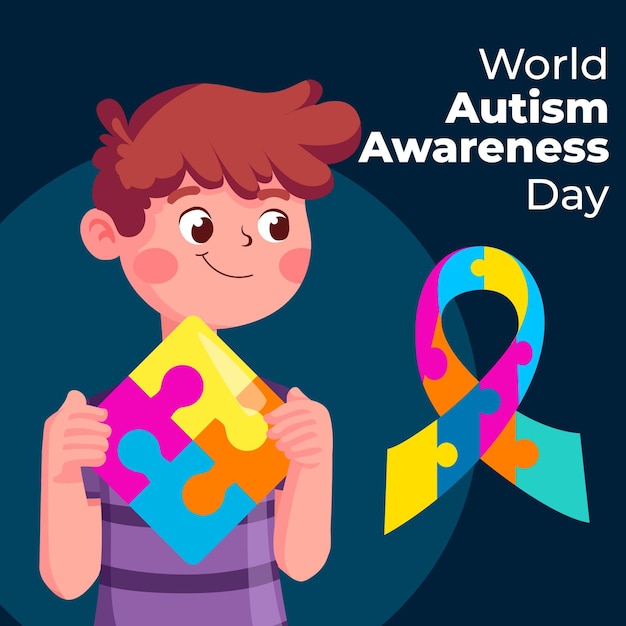Discover Fascinating Facts about Autism

Autism is a spectrum disorder, meaning that individuals with autism can vary greatly in their abilities and challenges.
The term autism was coined by Swiss psychiatrist Eugen Bleuler in the early 20th century.
Autism affects more boys than girls, with a ratio of around 4 to 1.
Individuals with autism often have unique and remarkable talents, such as exceptional memory or artistic abilities.
Temple Grandin, a renowned animal behavior expert, author, and speaker, is also autistic.
Albert Einstein and Sir Isaac Newton are believed to have exhibited traits consistent with autism.
Many individuals with autism have difficulty with social interactions and communication.
Autism is often diagnosed in early childhood, although some individuals may not receive a diagnosis until later in life.
The prevalence of autism has been steadily increasing over the years, but it is unclear whether this is due to better diagnostic methods or an actual increase in cases.
Autism is a lifelong condition, but early intervention and support can greatly improve outcomes for individuals with autism.
Some studies suggest that certain nutritional and dietary interventions may be beneficial for individuals with autism.
Autism is not caused by bad parenting or vaccines, as previously believed by some.
People with autism often have an intense focus and strong interests in specific topics or activities.
Sensory sensitivities are common in individuals with autism, with some being hypersensitive to certain sounds, lights, or textures.
Discover Fascinating Facts about Autism part 2
Autism is not a mental illness, but a neurological developmental disorder.
Autism can affect individuals of all races, ethnicities, and socioeconomic backgrounds.
Individuals with autism may have difficulty understanding figurative language, such as idioms or sarcasm.
The autism community uses a puzzle piece as a symbol to represent the complexity and diversity of the condition.
Autism acceptance and inclusion have become important movements to promote understanding and support for individuals with autism.
Some individuals with autism have unique abilities to process information and patterns that can be advantageous in fields like mathematics or computer programming.
Autism can co-occur with other conditions, such as ADHD, anxiety, or epilepsy.
Genetic factors play a significant role in the development of autism, but environmental factors may also contribute.
Many individuals with autism possess an incredible attention to detail and notice things that others may overlook.
There is no one-size-fits-all approach to supporting individuals with autism, as their needs and abilities can vary greatly.
Some people with autism have challenges with motor skills and coordination, while others may excel in this area.
Early signs of autism can include a lack of eye contact, delayed speech, and repetitive behaviors.
Therapy and interventions can help individuals with autism develop social skills, improve communication, and manage sensory sensitivities.
Autistic people can often thrive in environments that provide structure, routine, and clear expectations.
Some individuals with autism have an aversion to certain textures, tastes, or smells, making mealtime challenging for them and their families.
Autistic individuals may have difficulty understanding and interpreting facial expressions, body language, and social cues.
Autism is not limited to humans; it can also be observed in animals, including dogs and cats.
The portrayal of autism in the media has improved over the years, but there is still a need for more accurate and diverse representation.
Some individuals with autism have above-average intelligence and are considered high-functioning, while others may have intellectual disabilities.
People with autism may experience sensory overload in noisy or crowded environments.
Individuals with autism often exhibit intense interests in specific subjects and may become experts in their chosen field.
Autism can impact a person’s ability to understand and express emotions, but this does not mean they lack empathy or compassionate feelings.
Some individuals with autism have an exceptional ability to recognize and remember intricate patterns or details, such as numbers, dates, or visual designs.
Autistic individuals may have difficulty with transitions and changes in routine, requiring support and preparation to manage these situations.
Autism is a lifelong journey, and individuals with autism continue to learn and grow throughout their lives.
The neurodiversity movement advocates for accepting and celebrating the different ways our brains work, including those with autism.
Some individuals with autism have a heightened sensitivity to meltdowns or emotional outbursts in others.
Autism is not something to be cured or fixed, but rather something to be understood and embraced.
Technology and assistive devices can be beneficial tools for individuals with autism, helping with communication, sensory regulation, and skill development.
Autistic individuals may have unique ways of problem-solving and thinking outside the box, bringing new perspectives to various fields.
While autism presents challenges, it also brings unique strengths and perspectives to the world, enriching our communities and society as a whole.

